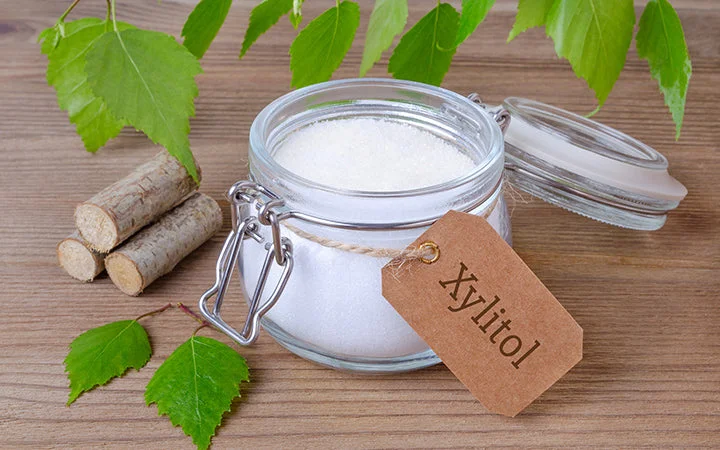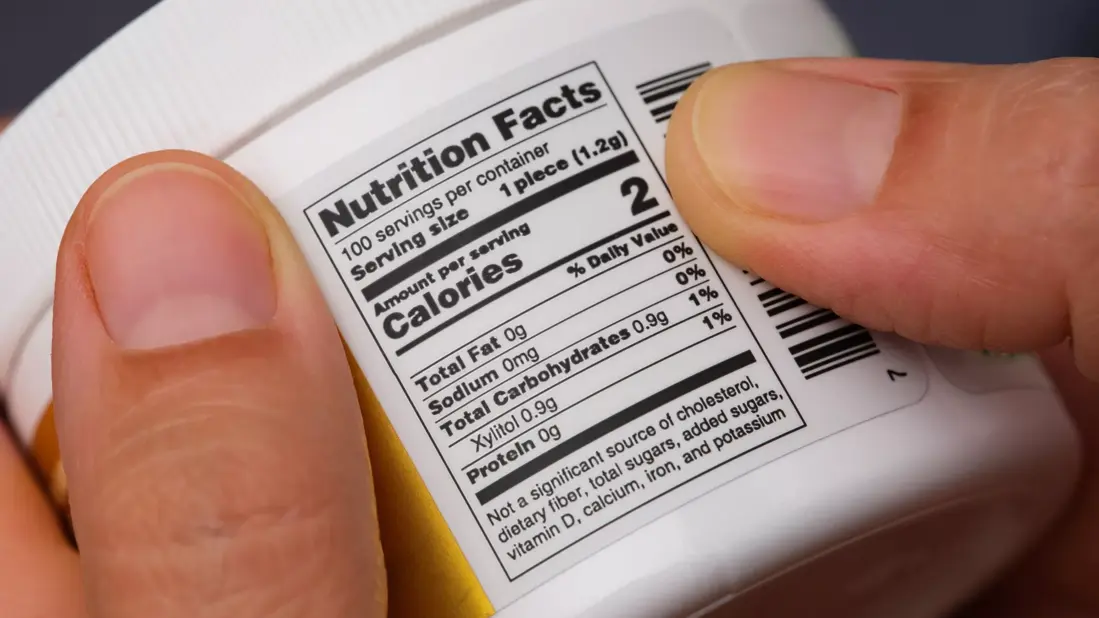Xylitol, a type of sugar alcohol, is quite the hit as a sugar alternative. It’s sweet like regular sugar but packs 40% fewer calories. You can spot traces of it in various fruits and veggies, which is why it’s often seen as a natural option. Interestingly, our bodies even produce a bit of it during normal metabolic processes.
Table of Contents
Xylitol as a Sugar Substitute

Xylitol is a common ingredient you’ll find in sugar-free chewing gums, candies, mints, and even foods tailored for those managing diabetes, as well as oral-care products. It matches the sweetness of regular sugar but with 40% fewer calories. Interestingly, it can be derived from trees such as birch or from a plant fiber called xylan.
These sugar substitutes, like xylitol, are additives that mimic the sweetness of sugar but with significantly fewer calories, making them ideal for those seeking zero or low-calorie options. Stevia, monk fruit, and erythritol are also among the popular choices for sugar alternatives.
Health Benefits of Xylitol
Xylitol comes with some impressive health perks. With its very low glycemic index, it doesn’t cause spikes in blood sugar or insulin levels, making it a standout choice for those mindful of their sugar intake. Unlike sugar, xylitol sidesteps the harmful effects typically associated with sweeteners. Its glycemic index sits at a mere 7, a far cry from the 60-70 range of regular sugar. Plus, with 40% fewer calories than sugar, it even lends a hand to weight-loss efforts. For folks managing conditions like diabetes, prediabetes, obesity, or other metabolic issues, xylitol emerges as a top-notch alternative to traditional sugar.
Potential Health Risks
Recent studies have brought up some concerning findings regarding the potential risks of consuming xylitol. Researchers discovered a possible link between xylitol consumption and a higher risk of experiencing a heart attack or stroke.
A heart attack happens when blood flow to the heart is suddenly blocked, often by a clot, which can cause severe damage to the heart muscle and pose life-threatening consequences. On another note, high sugar intake is associated with an increased risk of tooth decay. Therefore, incorporating no-calorie sweeteners into food and drinks, as long as they don’t contain sugars, can play a role in reducing the risk of tooth decay.
Conclusion
Absolutely, moderation and awareness are key when it comes to consuming any food or supplement, including xylitol. While it’s gained popularity as a sugar substitute with potential health perks, recent studies have hinted at potential serious risks. It’s crucial to stay informed about the latest research and consult with a healthcare professional before making significant changes to your diet, especially if you have underlying health conditions or concerns. Your health should always come first.




